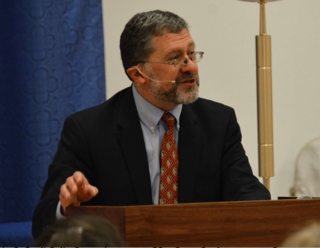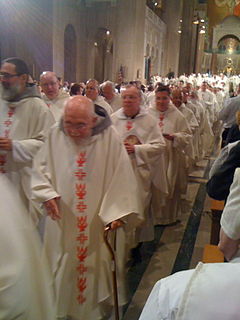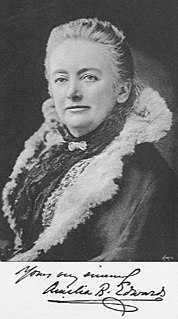A Quote by Charles Caleb Colton
Whenever we find ourselves more inclined to persecute than to persuade, we may then be certain that our zeal has more of pride in it than of charity.
Related Quotes
Many ... begin to make converts from motives of charity, but continue to do so from motives of pride. ... Charity is contented with exhortation and example, but pride is not to be so easily satisfied. ... Whenever we find ourselves more inclined to persecute than persuade, we may then be certain that our zeal has more of pride in it than of charity.
We are more inclined to hate one another for points on which we differ, than to love one another for points on which we agree. The reason perhaps is this: when we find others that agree with us, we seldom trouble ourselves to confirm that agreement; but when we chance on those who differ from us, we are zealous both to convince and to convert them. Our pride is hurt by the failure, and disappointed pride engenders hatred.
There are some things more important than ourselves - more important than the limits of the present, and the whims of the now. There is a future to build and protect. And if we're going to make that future as reality, we have to stop fighting among ourselves. We have to end dissent whenever we find it. We have to trust one another again.
It is only a short step from exaggerating what we can find in the world to exaggerating our power to remake the world. Expecting more novelty than there is, more greatness than there is, and more strangeness than there is, we imagine ourselves masters of a plastic universe. But a world we can shape to our will is a shapeless world.
I have learned to prize holy ignorance more highly than religious certainty and to seek companions who have arrived at the same place. We are a motley crew, distinguished not only by our inability to explain ourselves to those who are more certain of their beliefs than we are but in many cases by our distance from the centers of our faith communities as well.
Now since man is naturally inclined to avoid pain - and since labor is pain in itself - it follows that men will resort to plunder whenever plunder is easier than work. History shows this quite clearly. And under these conditions, neither religion nor morality can stop it. When, then, does plunder stop? It stops when it becomes more painful and more dangerous than labor.
Pride differs in many things from vanity, and by gradations that never blend, although they may be somewhat indistinguishable. Pride may perhaps be termed a too high opinion of ourselves founded on the overrating of certain qualities that we do actually possess; whereas vanity is more easily satisfied, and can extract a feeling of self-complacency from qualifications that are imaginary.
And I have found that when we Catholics, in the spirit of love and charity, declare our faith boldly and with conviction, we are more likely to find kindred spirits. This is how we must comport ourselves if we are to fulfill our Lord's command in the Gospel of John (17:21), Ut unum sint, that all may be one.
It may be said of some very old places, as of some very old books, that they are destined to be forever new. The nearer we approach them, the more remote they seem: the more we study them, the more we have yet to learn. Time augments rather than diminishes their everlasting novelty; and to our descendants of a thousand years hence it may safely be predicted that they will be even more fascinating than to ourselves. This is true of many ancient lands, but of no place is it. so true as of Egypt.

































